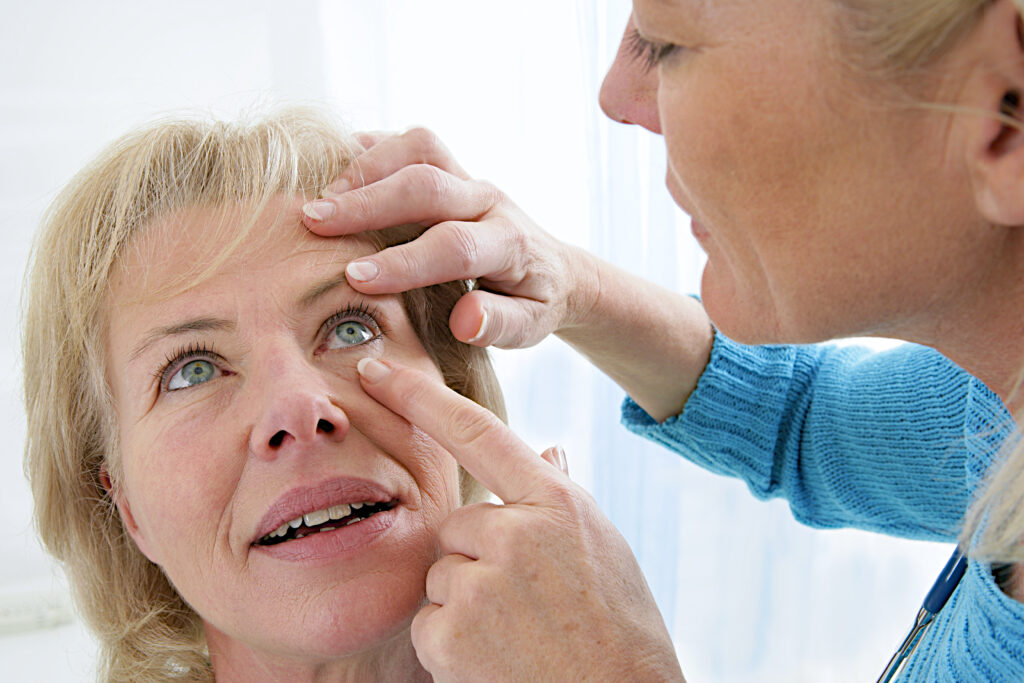
Diabetic retinopathy is the primary cause of blindness in diabetic individuals. Both eyes are usually affected. The dedicated eye care specialists at Reading’s Berks Eye Physicians and Surgeon Ltd. explain how to recognize the condition and why prompt treatment is necessary.
Causes of Diabetic Retinopathy
Diabetic retinopathy results from the damage to the blood vessels in the retina’s tissue. The retina, a thin layer of tissue located at the back of the eye, converts light signals from the lens into neural signals and then transmits them to the brain.
Too much sugar in the blood can affect the minute blood vessels feeding the retina. The blood supply to these vessels is cut off or diminished. While the eye tries to grow new vessels, they are weaker and more likely to leak.
Blood vessel damage is progressive. Eventually, scar tissue created by new blood vessel growth can cause retinal detachment. Sometimes, the new blood vessels wreak havoc on the eye’s fluid flow. This can result in the buildup of pressure and optic nerve damage. Glaucoma is the end result. In time, retinal detachment or glaucoma can lead to total vision loss.
Risk Factors for Diabetic Retinopathy
While anyone with diabetes may develop diabetic retinopathy, some are more vulnerable than others. The longer you have had diabetes, the higher the risk. Other factors include:
- Poor blood-glucose level management
- High blood pressure
- High cholesterol
Smoking is a significant risk factor. So is pregnancy. Diabetic retinopathy occurs more frequently in those of Black, Hispanic and Native American ancestry.
Diabetic Retinopathy Symptoms
Early signs of diabetic retinopathy are subtle. The condition may have progressed before symptoms appear, another reason annual eye exams are critical.
Suspect diabetic retinopathy if experiencing any of the following vision symptoms:
- Blurriness
- Cloudiness
- Contrast reduction
- Dark vision areas
- Difficulty seeing at night
- Floaters
- Loss of color vision
Always contact your eye doctor immediately if any vision changes occur.
Diabetic Retinopathy Treatment
Treatment for diabetic retinopathy depends on whether the disease is caught in its early stages or has advanced. Early treatment may consist of good diabetes management and more frequent eye exams. Advanced diabetic retinopathy may require surgery, laser treatment, or medication injected directly into the eyes.
As you know, diabetes is not curable. That means diabetic retinopathy could recur after treatment. Because good diabetes management is essential, follow your doctor’s orders regarding nutrition and exercise and monitor your blood sugar levels several times daily.
Schedule a Consultation at Berks Eye
While everyone should have their eyes examined regularly, it is especially crucial that those with diabetes undergo annual checkups. Contact the dedicated eye care specialists at Berks Eye in Reading, PA to schedule a consultation. The sooner diabetic retinopathy is diagnosed, the more treatment options are available.
 1802 Paper Mill Road, Wyomissing, PA 19610
1802 Paper Mill Road, Wyomissing, PA 19610

